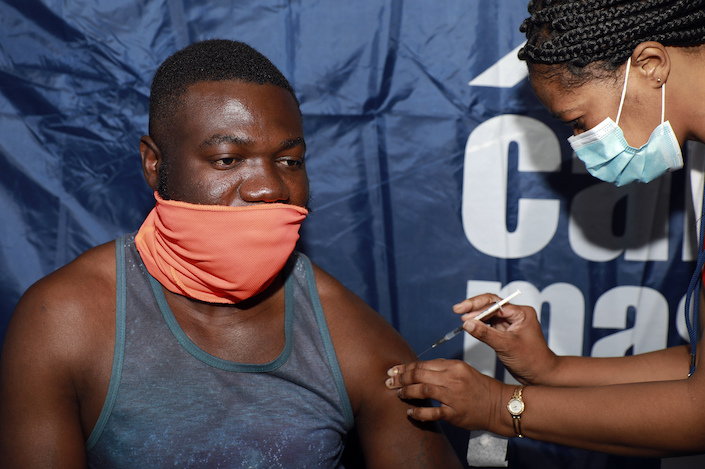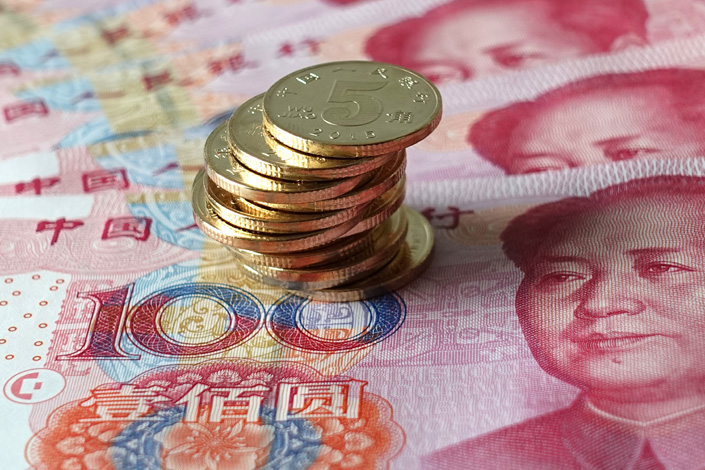CX Daily: The Dangling Sword of Omicron

Covid-19 /
Cover Story: The dangling sword of omicron
As the world still struggles to contain the fast-moving delta version of the Covid-19 virus, a new, even more easily-spreading variant is disrupting efforts to return to normal.
Less than four weeks after the omicron variant was found Nov. 9 in South Africa, the virus has spread to at least 23 countries across four continents. Concerns over the newest coronavirus variant have triggered global panic, sending stock markets and oil prices plunging, forcing countries to close borders and restrict travel again, putting existing vaccines and drugs to the test, and posing new challenges for both the zero-tolerance and coexistence pandemic strategies.
There are three main concerns about omicron: Is it more contagious and pathogenic than delta? Will it replace delta as the dominant strain? Will existing vaccines and drugs become ineffective?
Three Chinese firms begin producing Russian vaccine to boost global supply
FINANCE & ECONOMY
The PBOC says it will lower financial institutions’ reserve requirement ratio by 50 basis points Dec. 15. Photo: IC Photo
Monetary policy /
PBOC to free up $188 billion for lending to businesses with new reserve requirement cut
China’s central bank will cut the amount of cash lenders need to keep in reserve, injecting about 1.2 trillion yuan ($188 billion) into the financial system to support the real economy and stabilize companies’ financing costs.
The People’s Bank of China (PBOC) said Monday it will lower financial institutions’ reserve requirement ratio (RRR) by 50 basis points, or half a percentage point, on Dec. 15. The weighted average RRR of financial institutions will fall to 8.4%, according to the PBOC (link in Chinese).
The central bank said in the statement announcing the cut that it will maintain a stable monetary policy, keep liquidity reasonably ample, coordinate macroeconomic policy between this year and the next, and support small and midsize companies, green development, and scientific and technological innovation.
Audits /
China’s securities watchdog says it’s making progress with U.S. on talks over company audits
China’s top securities watchdog said progress has been made with U.S. regulators regarding some key issues on cross-border cooperation on audits of U.S.-traded Chinese companies, according to a spokesperson’s statement (link in Chinese) Sunday.
The spokesperson of the China Securities Regulatory Commission (CSRC) did not elaborate on the progress or the issues.
The CSRC and domestic regulators have always been open to Chinese companies choosing overseas listing locations and fully respect their choice when it is in accordance with laws and regulations, the spokesperson said.
Real estate /
Property sales in China fall for fifth straight month
China’s real estate market continued to flounder in November. The sales of the top 100 property developers plunged 37.6% year-on-year by value, marking the fifth successive month of decline.
In the past month, the top 100 developers reported total property sales of 750.8 billion yuan ($117.9 billion), down 3.4% from October, a report released by consultancy China Real Estate Information Corp. (CRIC) on Tuesday showed. Among these developers, four out of five reported lower sales compared with November last year.
Corruption /
Former Shanghai bourse official faces corruption charges
Cao Jian, a former senior Shanghai Stock Exchange official in charge of listing reviews, faces prosecution for allegedly taking bribes, China’s top graft buster said late Friday.
Cao, 55, was the deputy chief responsible for vetting initial public offerings (IPOs) on the Nasdaq-like STAR Market. Cao was placed under investigation in June. A subsequent search of his home found more than $30 million in cash.
Quick hits /
Crypto exchange to leave mainland clients with one option: withdraw
Former deputy IMF chief joins Chinese state-owned insurance giant
China’s Primavera Capital opens Singapore office, eyes more deals in Southeast Asia
BUSINESS & TECH
A SenseTime booth at an Expo in Fuzhou, East China’s Fujian province, on April 25. Photo: VCG
AI /
Chinese AI giant SenseTime tries for $767 million IPO in Hong Kong
SenseTime Group Inc., a leading Chinese artificial intelligence (AI) startup, wants to raise as much as HK$5.99 billion ($767.69 million) in its Hong Kong initial public offering (IPO), far less than rumored, as it opened subscriptions for the offering Monday.
SenseTime aims to sell 1.5 billion shares for HK$3.85 to HK$3.99 each, with the total accounting for 4.5% of its outstanding shares, according to a term sheet seen by Caixin.
“Sixty percent of the raised capital will be used for research, 15% for strategic investment, 15% for business development, and the remaining 10% for operating costs,” SenseTime’s Chief Investment Officer Wang Zheng said Mondayat a press conference.
Evergrande crisis /
Wang Tao: What are the implications of an Evergrande debt default
After months of spiraling concerns and speculation over its debt, one of China’s largest property developers Evergrande formally announced on Dec. 3 that it had received a notice to honor an offshore guarantee obligation of $260 million. The company stated that the group will proactively evaluate its financial obligations with its advisors, and that it will “communicate with offshore creditors” to restructure offshore debt.
Meanwhile, the Guangdong government (where Evergrande is based) announced that it would be sending a team to Hengda Real Estate, the real estate arm of Evergrande, “at the company’s request”, to help “supervise corporate internal control”, “supervise risk disposal”, and maintain “normal operation”. It seems that at least one long-standing question surrounding the company has been answered — Evergrande is not “too big to fail” and it must meet its debt obligations.
Shares of developer Aoyuan tumble after creditors demand $650 million
Drug /
Mother fighting to get prosecutors to admit her innocence after buying illegal drug for sick son
Li Xia (pseudonym) was one of four Chinese mothers charged with drug smuggling after they were found to be importing a controlled narcotic to treat their children’s rare form of epilepsy.
In recognition of their motive, the prosecutors offered them a deal in which the women admit they broke the law, but they won’t be prosecuted or face any punishment.
Li was the only one who refused to sign the deal — on Nov. 29 she filed an appeal with the Zhongmou County People’s Procuratorate in Central China’s Henan province, demanding they reverse their decision and officially rule she hasn’t broken the law as her actions were motivated by medical need, not profit, and had no ill effect on society.
Cloud /
Amid platform crackdown, TikTok-owner ByteDance looks to the cloud
Chinese short-video behemoth ByteDance is getting into the cloud business.
Volcano Engine, a brand launched by the TikTok operator in the summer, announced a series of enterprise cloud services in a major step into a market dominated by larger rivals Alibaba and Tencent.
Quick hits /
EV-battery maker CATL to build $5 billion new production base
Opinion: Investors paid the price for ignoring Didi’s long-running compliance issues
Editorial: Reasons to be wary of calls for abolishing China's independent director system
GALLERY
Chinese athletes shine at Big Air World Cup
Recommended newsletter for you /
China Green Bulletin Premium - Subscribe to join the Caixin green community and stay up to date with the most exclusive insights on ESG, energy and carbon. Sign up here.
Thanks for reading. If you haven’t already, click here to subscribe.
- MOST POPULAR




